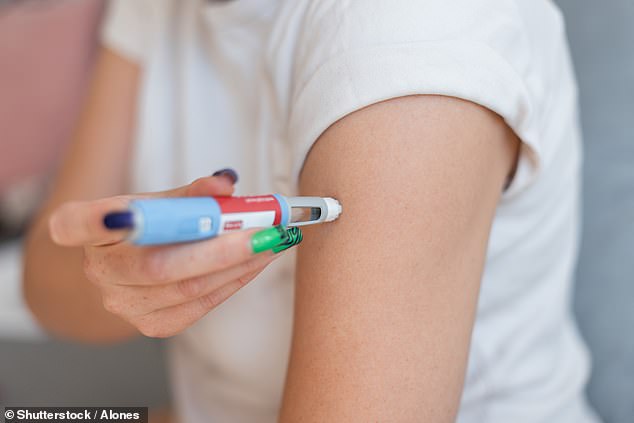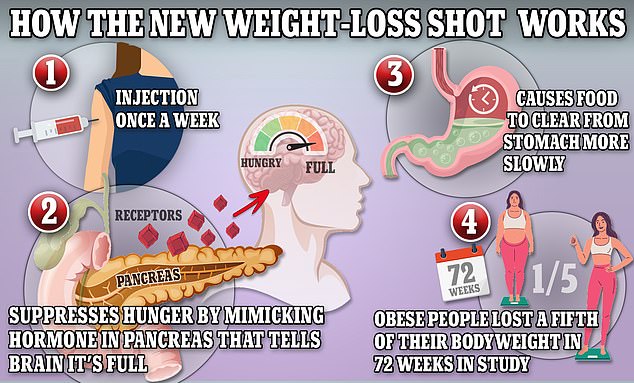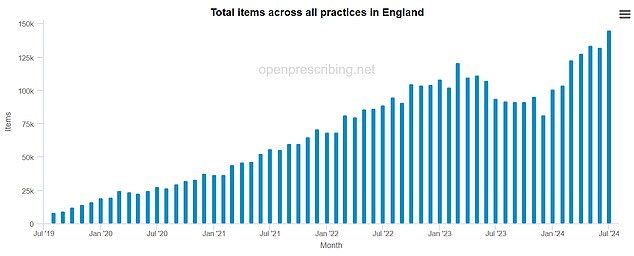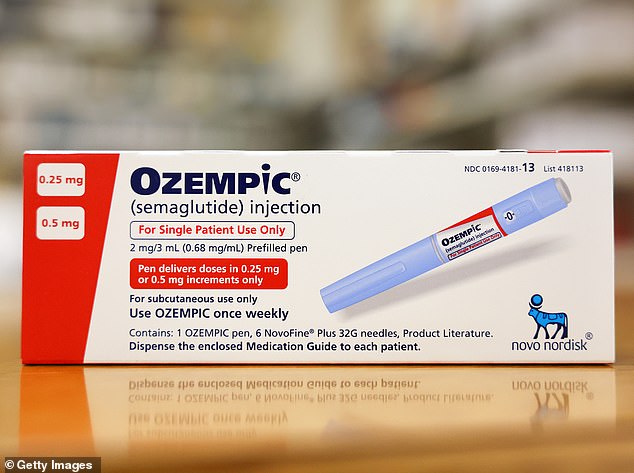Wes Streeting and the medical regulator yesterday issued a joint alert amid growing concerns that “serious medications” are being abused.
The health secretary said the injections are not “cosmetic” treatments and should only be used by obese people who have failed to change weight through diet and exercise.
They should also be prescribed and used responsibly and under medical supervision, he added.
The Medicines and Healthcare products Regulatory Agency (MHRA) has reminded healthcare professionals to inform patients about possible side effects of medicines.
And he said they must report adverse reactions to officials using the MHRA Yellow Card scheme.
Health Secretary Wes Streeting said injections are not “cosmetic” treatments

Doctors are told to keep an eye out for patients who misuse fat injections for a ‘quick fix’ (file image)

Ozempic and its sister drug Wegovy work by causing the body to bind to a receptor called glucagon-like peptide-1 (GLP-1), a protein that triggers the release of hormones in the brain that keep the stomach full and tell the body stop eating and avoid cravings

The NHS-backed OpenPrescribing data source shows soaring prescriptions for semaglutide, the drug in Ozempic and Wegovy.
The class of medications known as glucagon-like peptide-1 (GLP-1) receptor agonists includes products such as Wegovy and Ozempic, which are used to treat obesity and diabetes.
More than one in ten consumers will experience gastrointestinal side effects, such as vomiting and diarrhea.
In most cases, these are not serious, but sometimes they can lead to severe dehydration that can lead to hospitalization.
Streeting, who has proposed giving unemployed obese people injections to get them back to work, said: “Weight loss drugs have huge potential.”
“When taken together with a healthy diet and exercise, they can be a game-changer in combating obesity and returning people to good health.
‘But these are not cosmetic medications that should be taken to help achieve a beautiful body image for Instagram.
‘These are serious medications and should only be used responsibly and under medical supervision.
‘They are not a quick solution to lose a few kilos and buying them online without proper evaluation can put people’s health at risk.
“Approved weight management medications should only be used by those struggling with obesity, where diet and exercise have been tried first and where patients are eligible.”
Other serious side effects of the drug include pancreatitis and gallbladder disorders.
When “used appropriately” in accordance with the product licence, the MHRA said the benefits of the medicines outweigh the risks.

The Medicines and Healthcare products Regulatory Agency (MHRA) reminded healthcare professionals to inform patients of possible side effects of medicines

The Food, Diet and Obesity Committee previously called on ministers to fix the “broken food system” (file image)
However, he warned that this balance is positive only for those patients within the approved scope.
For weight management, this means patients with a body mass index (BMI) greater than or equal to 30 or patients whose BMI is greater than or equal to 27 and have a weight-related medical condition, such as cardiovascular disease.
GLP-1 receptor agonists can only be prescribed by a registered healthcare professional.
The MHRA said patients who obtain a private prescription from a non-NHS prescriber should ensure it is dispensed from an authorized source, such as a registered pharmacy, to avoid the risk of receiving a counterfeit.
Some fake injections have been found to contain insulin, which could cause severe hypoglycemia (low blood sugar) requiring urgent medical attention.
Signs include sweating, shaking, feeling tired or weak, and confusion.
Dr Alison Cave, chief safety officer at the MHRA, said: “All medicines carry a risk of potential side effects and GLP-1RAs are no exception.
‘We encourage healthcare professionals to ensure that patients treated with these medicines are aware of common side effects and how to minimize the risk.
«It has not been demonstrated that the balance between benefits and risks outside the authorized indication is favorable. Please report cases of misuse, especially if damage occurs.’

